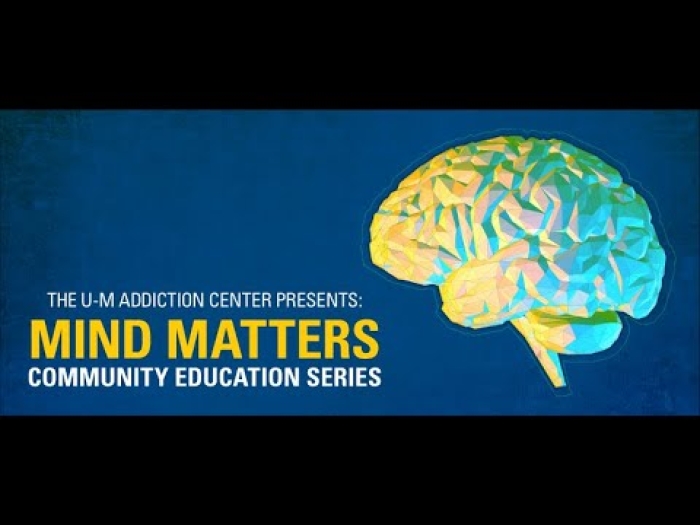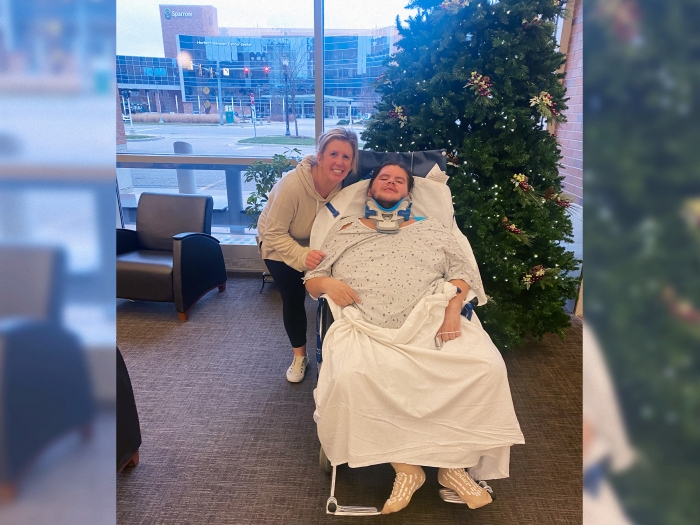After a stroke, most patients have sleep apnea. A University of Michigan-led clinical trial will investigate whether treating it right away will improve outcomes.
Author |
Recovery after a stroke is often challenging, and patients are also at heightened risk of another stroke. Now, with the launch of a new clinical trial, stroke survivors across the country will have the opportunity to help guide how future patients are cared for after a stroke.
For the trial, called Sleep SMART (Sleep for Stroke Management and Recovery Trial), researchers will investigate whether obstructive sleep apnea diagnosis and treatment improves stroke recovery or reduces the likelihood of another stroke. The University of Michigan-led trial will be carried out at partner sites here and across the country.
“It’s a seminal study,” says co-principal investigator Ronald Chervin, M.D., M.S., a neurologist and director of the University of Michigan Sleep Disorders Centers. “We have long had the suspicion that sleep apnea increases the risk for recurrent stroke and that it can impede recovery, but this will be the first large, randomized trial.” At an estimated cost of $45 million over the five-year period, it’s also the largest in the history of Michigan Medicine’s Department of Neurology.
About 70 percent of post-stroke patients have sleep apnea, according to co-principal investigator Devin Brown, M.D., M.S., a neurologist and longtime stroke researcher. And although the association between stroke and sleep apnea is clear, experts still don’t know the nature of it: whether many patients’ sleep apnea was always there, and may have led to the stroke, whether the sleep apnea was exacerbated or created due to the stroke, or whether it’s a combination of the two. Nonetheless, the association offers a prime treatment opportunity.
“This is something we’re very hopeful will be an entirely new way of improving outcomes after stroke,” Brown says. “This would potentially give us a whole new facet of treatment that may be able to help both recovery and prevention, and it could be added on, potentially very safely, to any regimen, which makes that all the more exciting.”
Nationwide collaborations
Researchers at 110 sites, via the National Institutes of Health’s StrokeNet, plan to enroll 3,000 post-stroke patients in this randomized, controlled trial. Patients will begin the trial while still in the hospital, so the treatment group can begin right away, says Brown, who is also co-director of U-M’s Regional Coordinating Stroke Center, part of NIH StrokeNet.
The study will compare the standard treatment for sleep apnea, continuous positive airway pressure (CPAP), with standard usual care after stroke. At three and six months after random assignment to one approach or the other, the investigators will compare the treatment group’s stroke-related outcomes with those of the control group. The aim is to determine whether going forward, future patients who have a stroke should be screened and treated for OSA.
“Our thought is if we can prevent someone’s throat from closing during sleep -- an event akin to choking that can happen repeatedly in the immediate aftermath of stroke -- then we may actually be able to improve survival and perhaps recovery of some of the brain after the stroke,” Chervin says. “We really don’t know yet, which is why we need this randomized trial.”
Funding for the trial comes from the National Institute of Neurological Disorders and Stroke (NINDS) at the National Institutes of Health (U01NS099043). The researchers are working closely with NIH StrokeNet centers at the Medical University of South Carolina, which provides the national data management center, and the University of Cincinnati, which serves as the national coordinating center.
“We have made tremendous strides in improving stroke outcomes by timely reperfusion but have less to offer once the stroke damage has occurred,” said Walter Koroshetz, M.D., director of NINDS. “This trial will test whether improving oxygenation by treating sleep apnea, a very common symptom in stroke patients, can help the brain to recover.”
Industry partner Fusion Health will supply the sites with sleep apnea testing and CPAP equipment, incorporating telemedicine to better monitor patient adherence and results without requiring overnight sleep apnea tests or constant clinic visits.
The content is solely the responsibility of the authors and does not necessarily represent the official views of the National Institutes of Health.





